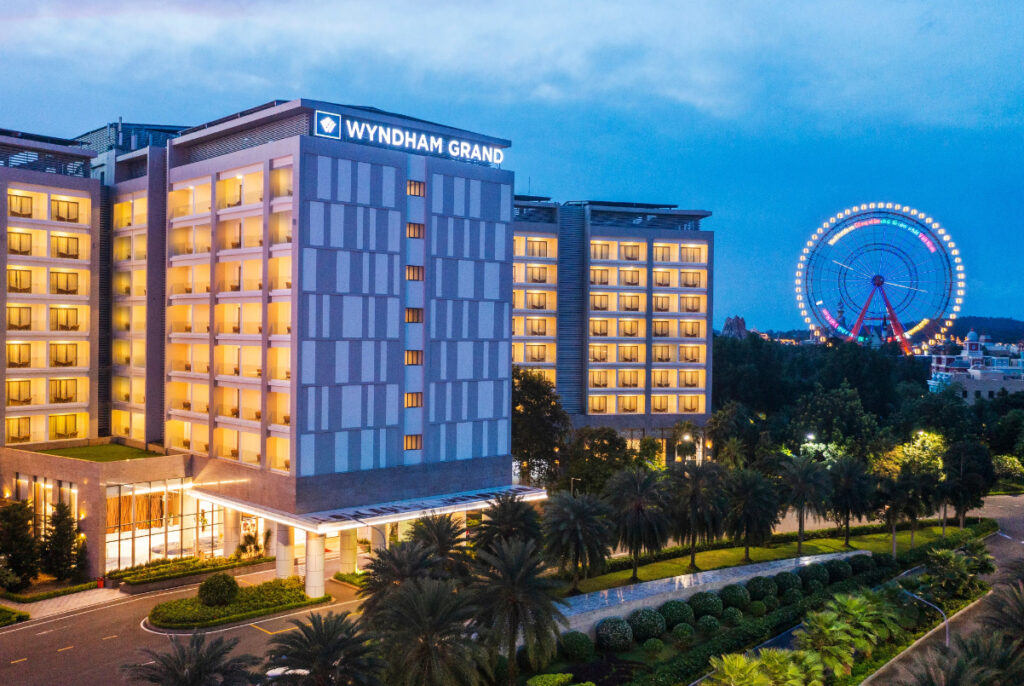
Skift Take
Hilton had painted a more subdued picture of leisure demand. Wyndham’s results show the benefits of having a heavy mix of hotels and resorts in the economy and midscale segments.
The world’s largest hotel franchisor is seeing resilient demand for leisure and business travel despite economic uncertainty — even at the budget end of the market. Wyndham’s third-quarter results highlighted the benefits of having a heavy mix of hotels and resorts in the economy and midscale segments.
“We believe that we’ll continue to see positive momentum — no waning in leisure travel demand — as we head through the fourth quarter and throughout 2025,” said president and CEO Geoff Ballotti during an earnings call Thursday.
“If interest rates do continue to come down, lower mortgage payments and moderating essential spending should drive an improvement in cash flow for our customers to vacation,” he said.
Hilton, on Wednesday, had painted a more subdued picture of leisure demand through 2025. However, with 9,200 hotels worldwide, Wyndham’s performance also offers key insights into the health of the broader travel industry. Unlike Hilton, the overwhelming majority of Wyndham’s properties are roadside select-service and its customer base is heavily working-class and middle-class families and business people.
Resilient Hotel Spending
Wyndham’s budget and midscale tiers saw a cooling in demand roughly a year ago after a roaring post-pandemic boom, but growth is resuming.
“For the economy segment, Q2 was better than Q1, Q3 was better than Q2,” Ballotti said, referring to financial quarters. “Economy hotel revenue per available room is a full [percentage] point ahead of the pace of overall domestic revenue per available room growth in 2019, so pricing power is strong.”
Average daily rates are holding 17% above pre-pandemic levels, still trailing cumulative inflation of 23% — suggesting room for further rate increases. Economy revenue per available room is “normalizing,” up 260 basis points from the first half.
“For the first three weeks of October, U.S. revenue per available room is trending up 3% year over year,” said Michele Allen, chief financial officer.
The international picture is even brighter. International revenue per available room rose by 7% in the third quarter across segments, including strength in economy and midscale.
Where the Growth Is:
- Hurricane relief: Wyndham’s select-service hotels are accommodating displaced families and emergency workers after two recent U.S. hurricanes. Only one hotel (a Super 8 in Asheville, North Carolina) is still closed. Wyndham’s hotels in affected areas are seeing increased storm-related and post-storm demand that may drive 40 basis points in additional revenue per available room growth for the U.S. for the fourth quarter.
- Texas: Wyndham has more hotels (about 700) in Texas than anywhere else, and the state has benefited from oil and gas exploration and data center construction.
- Extended stay: “Demand for extended-stay lodging is outpacing existing supply by a 3 to 1 margin,” Ballotti said. “And if you look at Q3, our economy extended stay revenue per available room was another 200 basis points higher than the overall economy segment of hotels. It’s really no surprise that extended stay is 36% of the domestic pipeline supply right now.”
- India: The group is bringing its Microtel brand to India, with plans to open 40 Microtels by 2031. Wyndham has eight brands in India and 60 hotels. “We expect double-digit net room growth over the next several years,” Ballotti said.
- Ancillary revenue: “Our co-branded credit card program has been the largest contributor to our ancillary fee growth in 2024 and likely will be again in 2025,” Allen said. The Wyndham Rewards Earner Business card saw a 34% year-over-year jump in sign-ups.
What’s Working:
- Winning deals: U.S. franchise sales teams signed 10% more deals in the quarter versus last year.
- Growth in footprint: 4% year-over-year growth in room count to 892,600 rooms. Expanded into new markets, including Spain, Turkey, and Indonesia.
- Record pipeline. Wyndham’s list of signed hotel deals is at record levels, at 248,000 rooms. Approximately 85% of that pipeline is for midscale or above hotels that charge higher rates on average and extended-stay lodging, which tends to be especially profitable.
- Lucky timing. Ballotti expected more favorable year-over-year performance comparisons “for the next four quarters.”
Third Quarter By the Numbers:
- Revenue: $396 million, slightly down from $402 million a year earlier.
- Net income: $102 million, roughly flat year-over-year.
- Adjusted EBITDA: $208 million, up 4% from last year, driven by room growth, higher royalty rates, and increased ancillary fees.
Accommodations Sector Stock Index Performance Year-to-Date
What am I looking at? The performance of hotels and short-term rental sector stocks within the ST200. The index includes companies publicly traded across global markets, including international and regional hotel brands, hotel REITs, hotel management companies, alternative accommodations, and timeshares.
The Skift Travel 200 (ST200) combines the financial performance of nearly 200 travel companies worth more than a trillion dollars into a single number. See more hotels and short-term rental financial sector performance.
Read the full methodology behind the Skift Travel 200.

